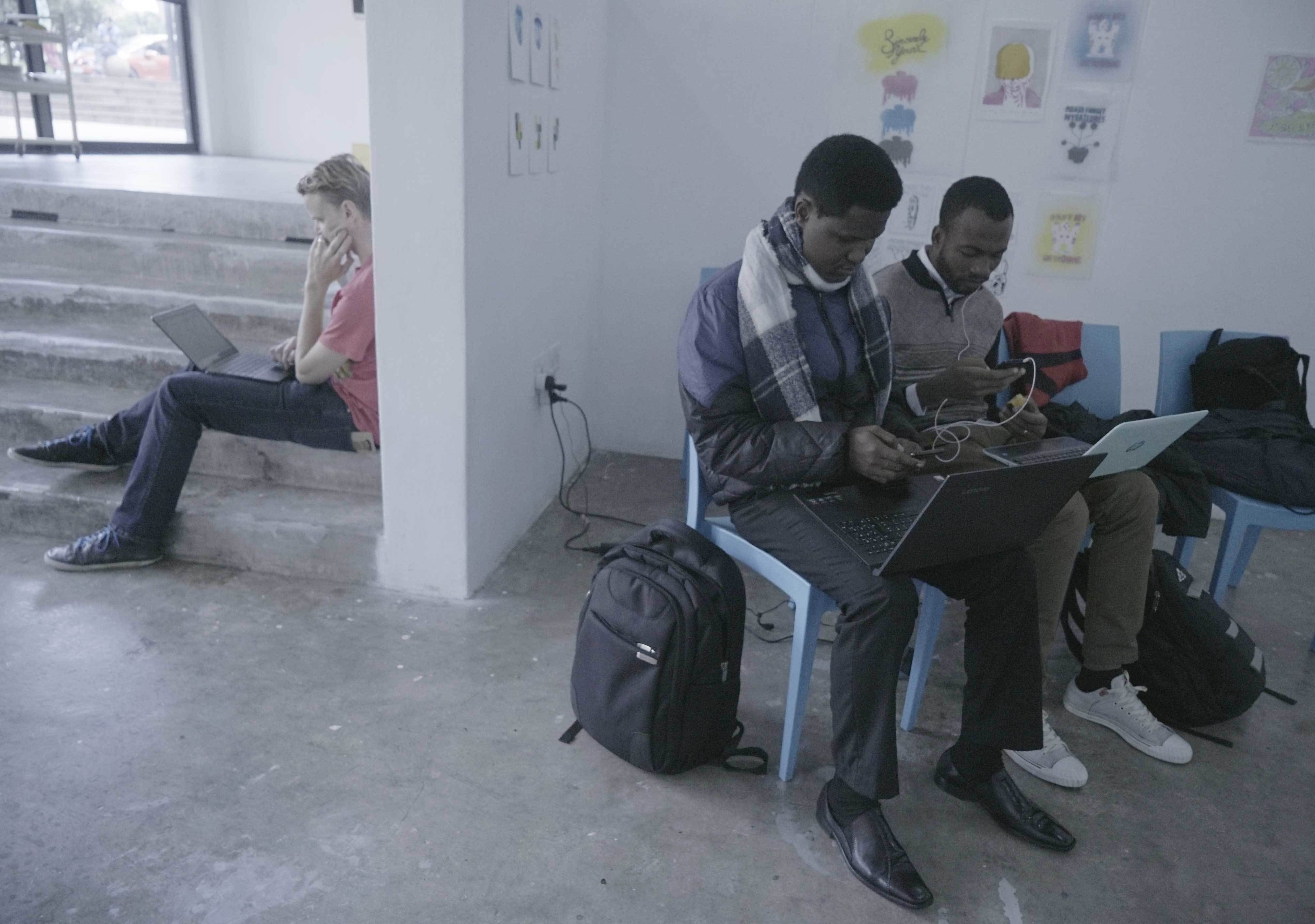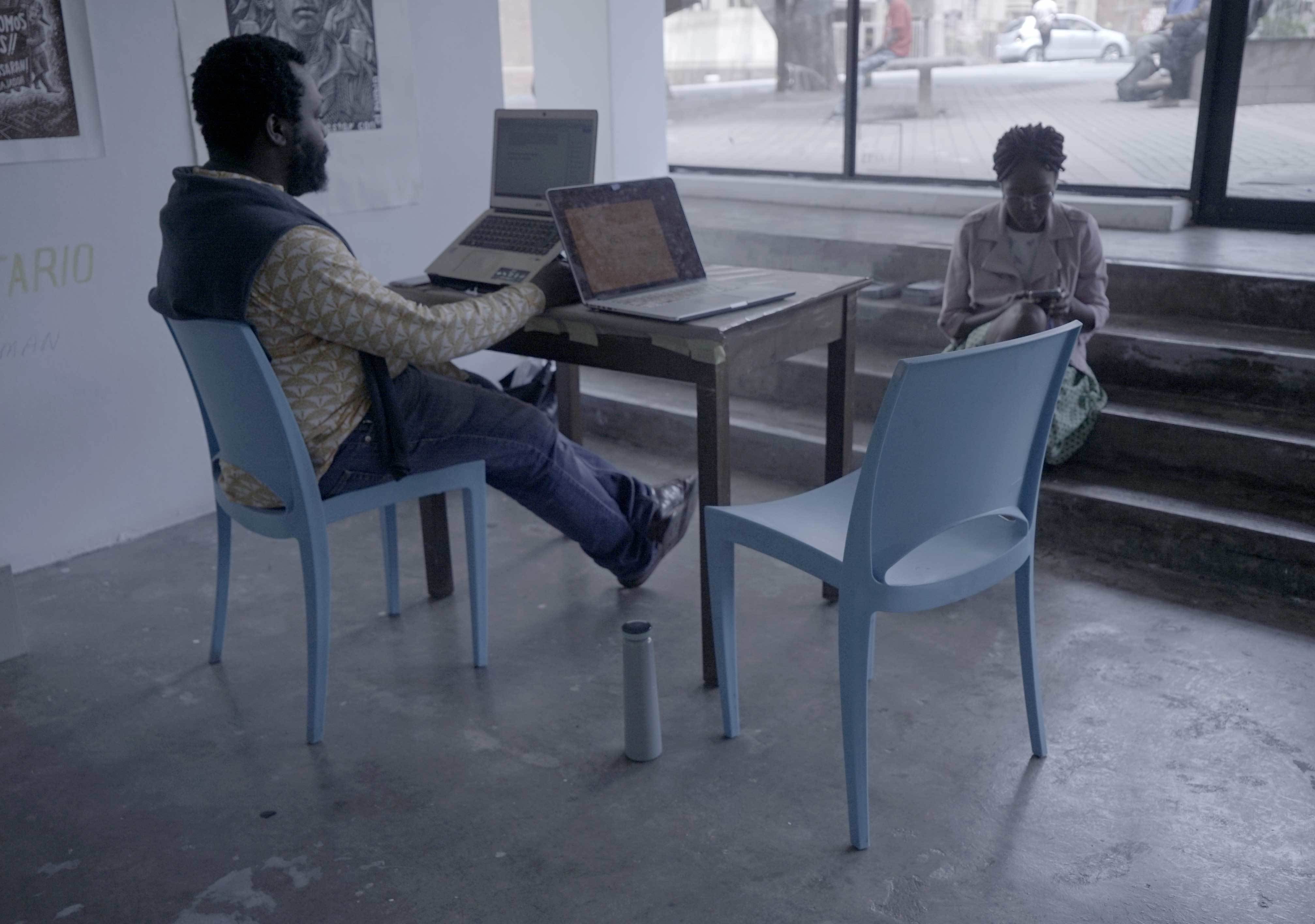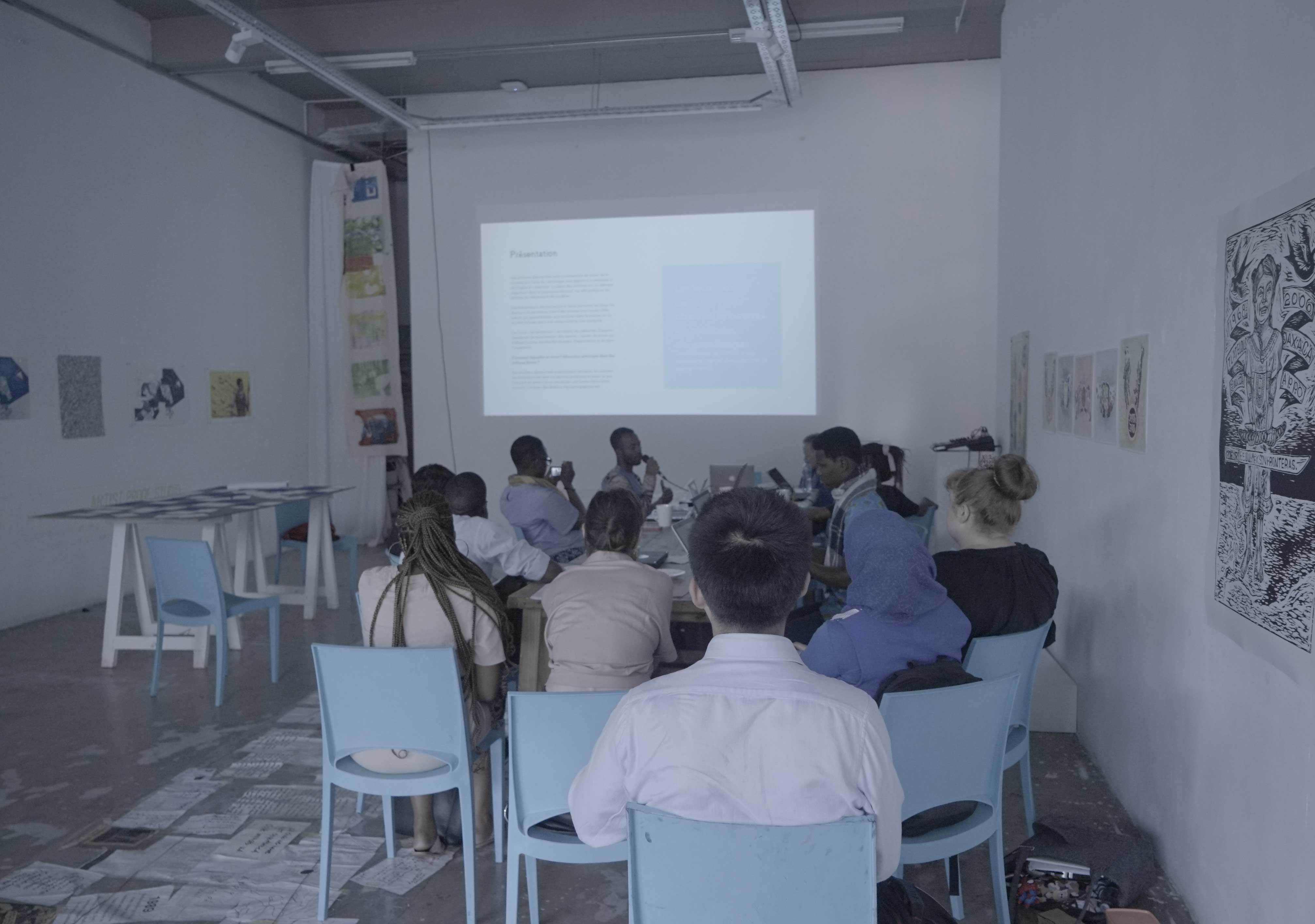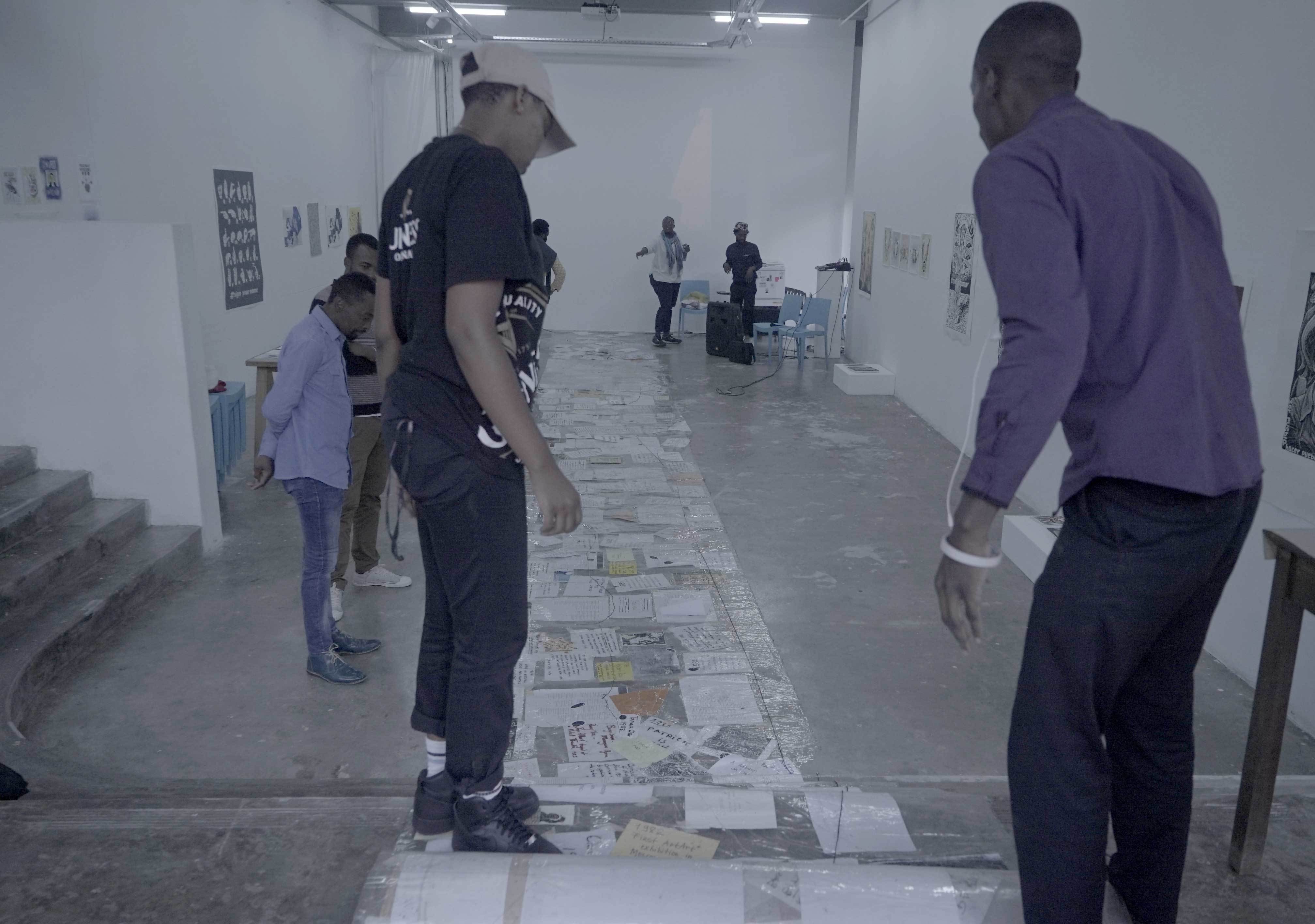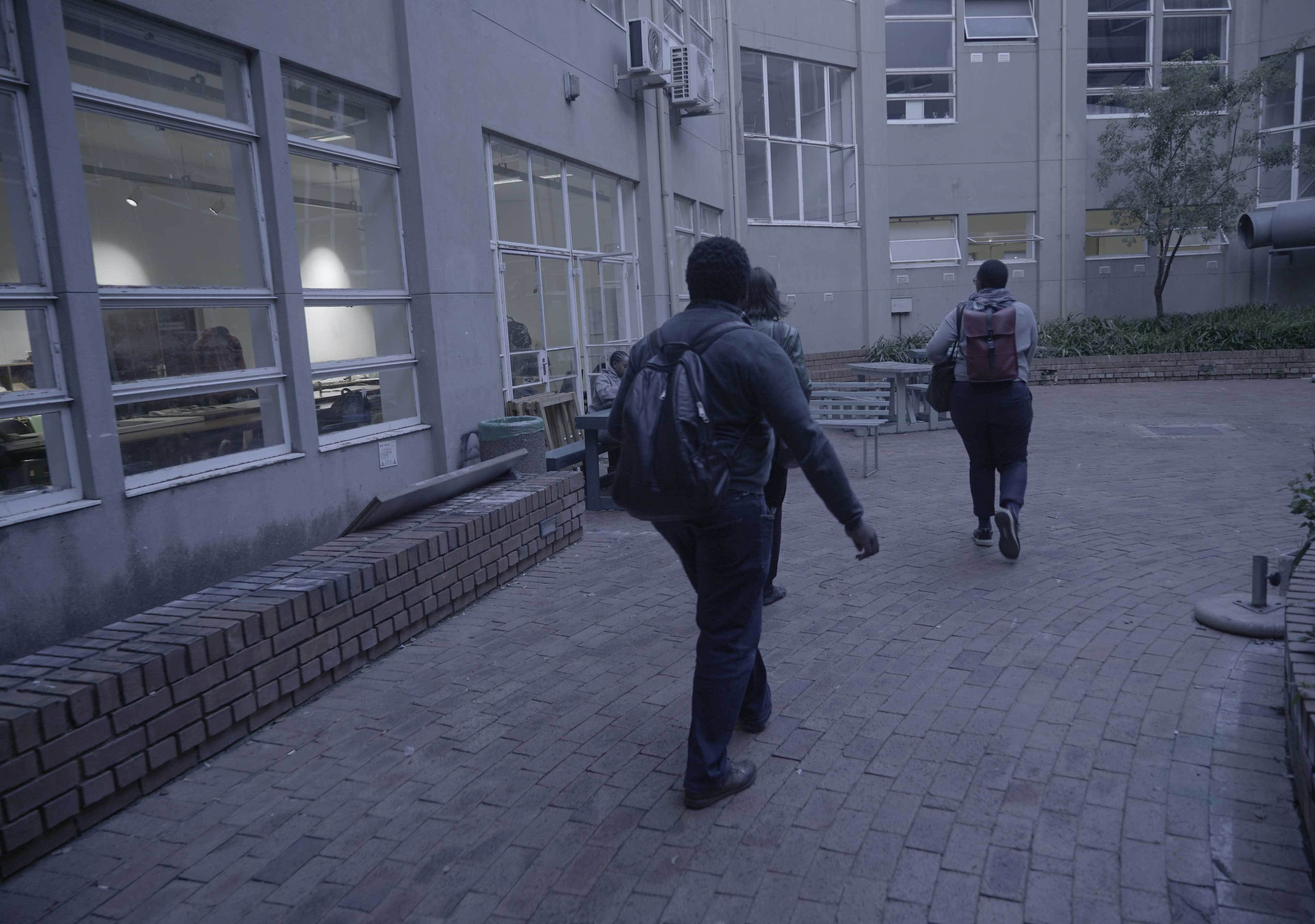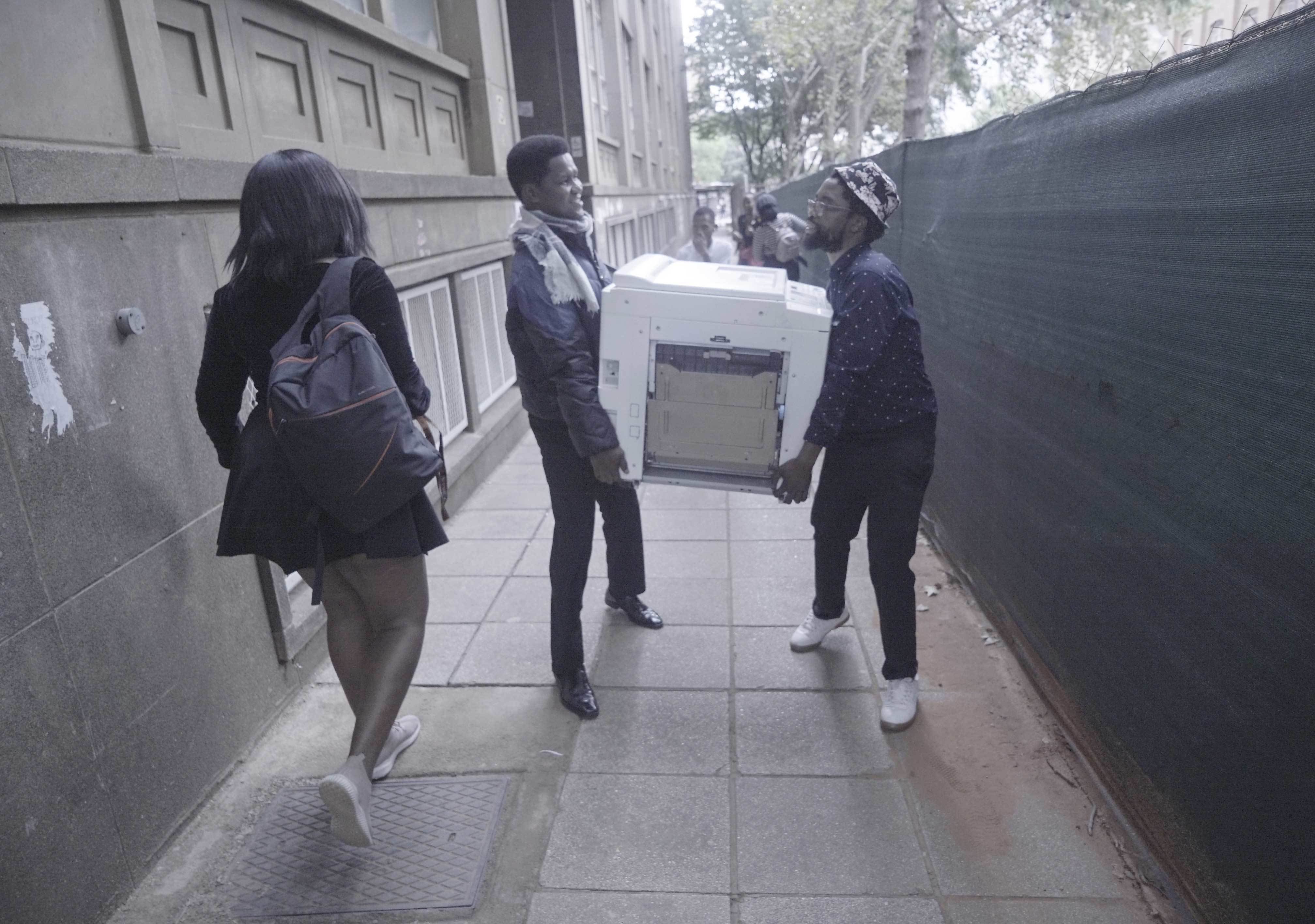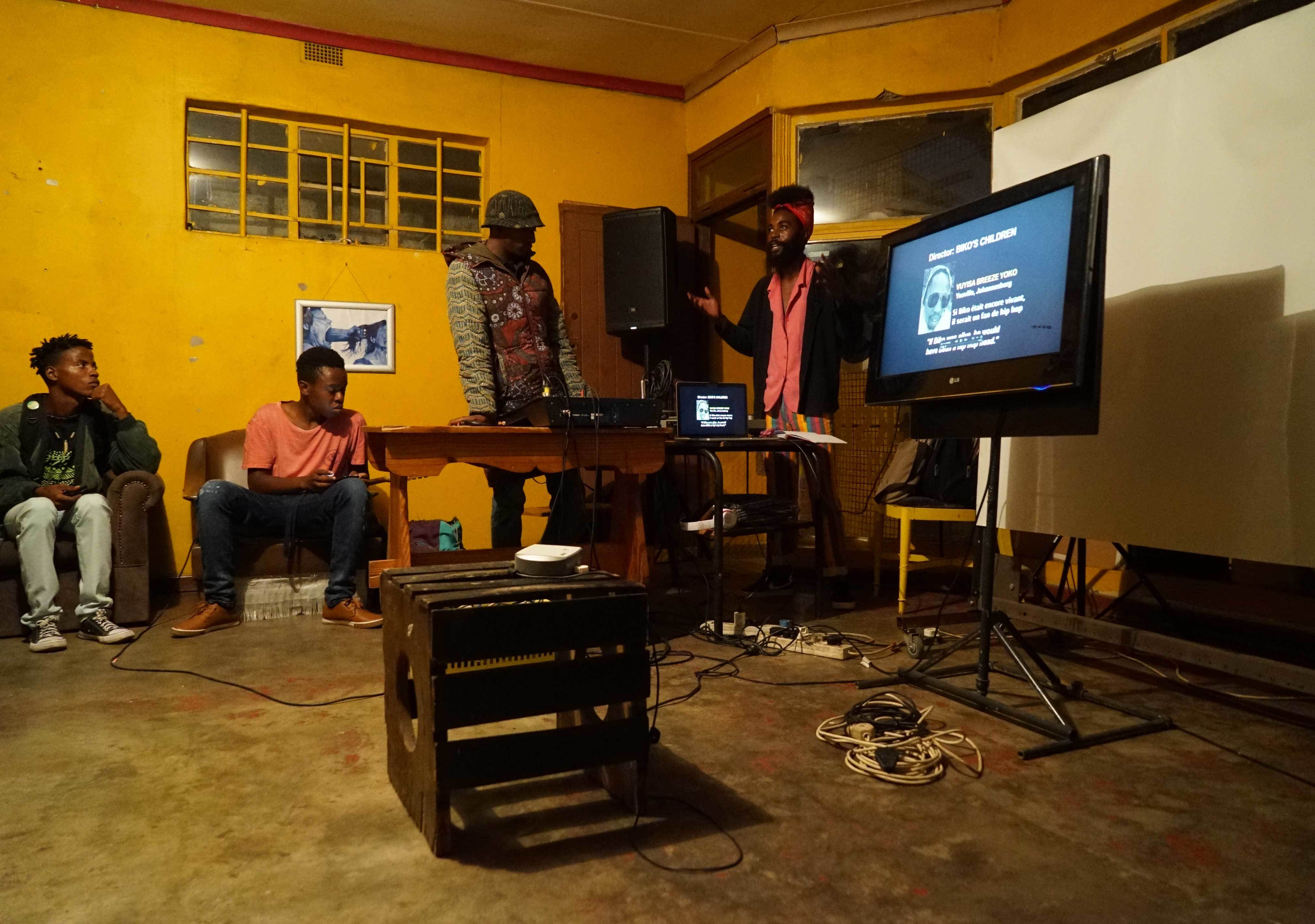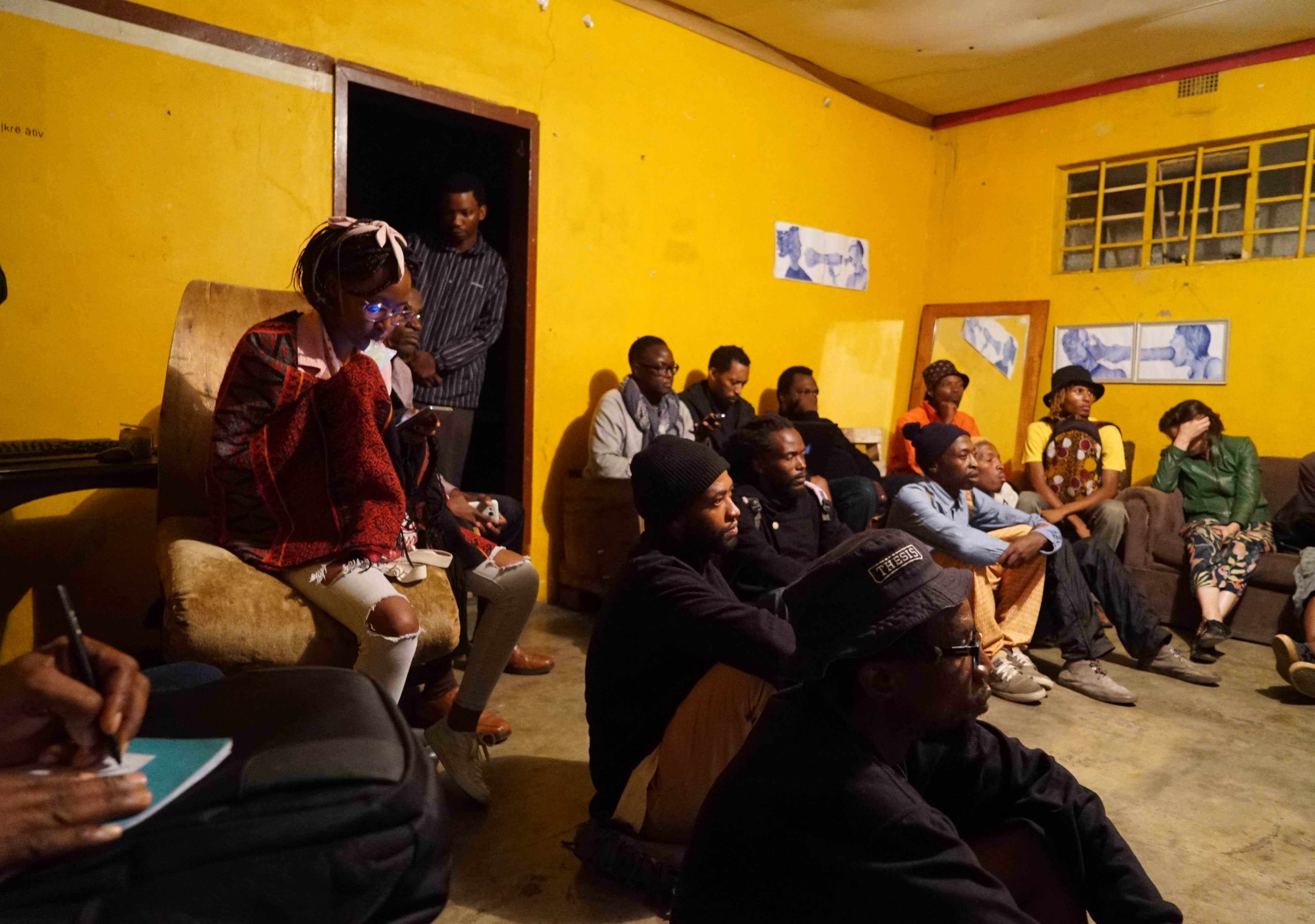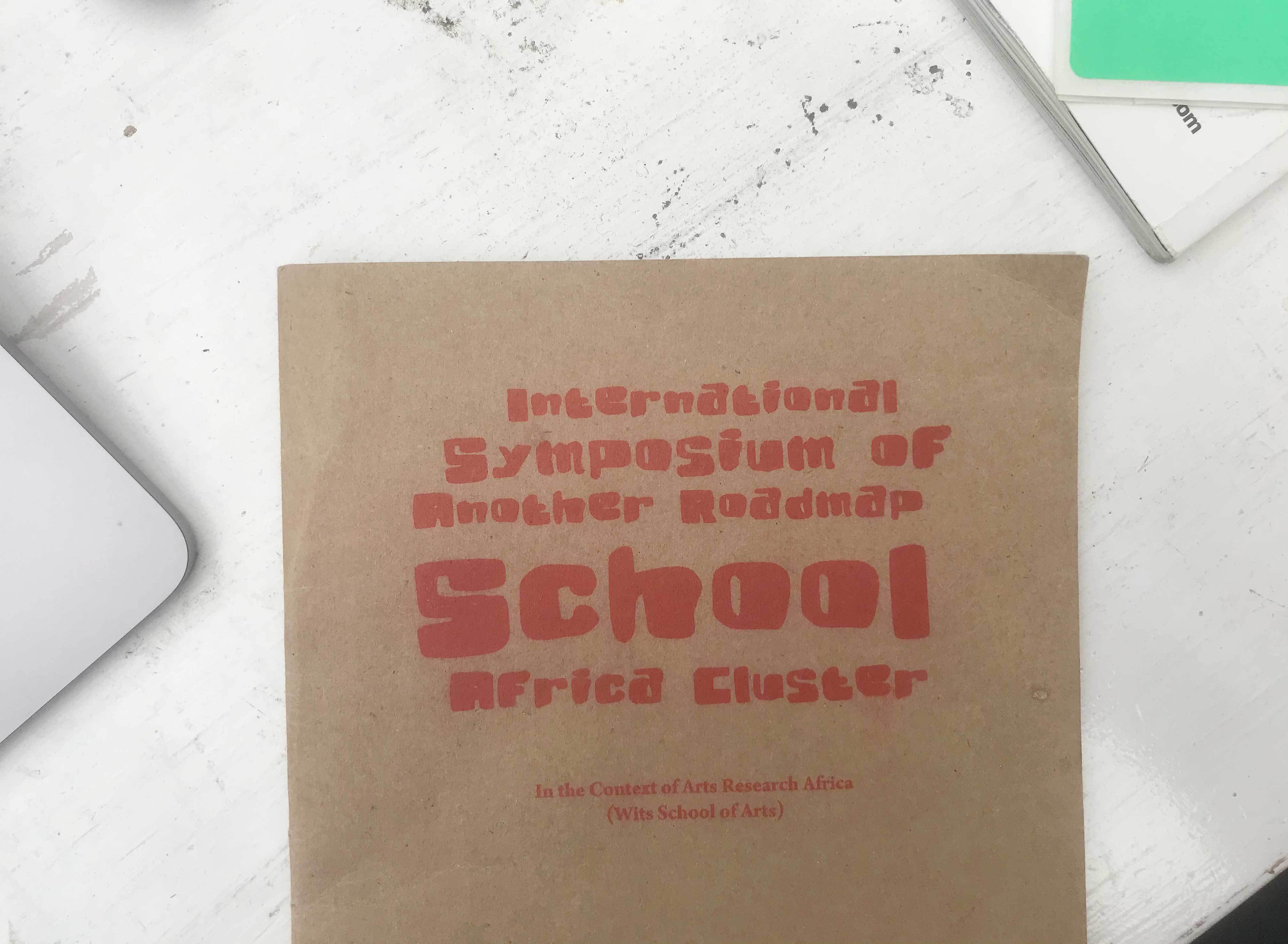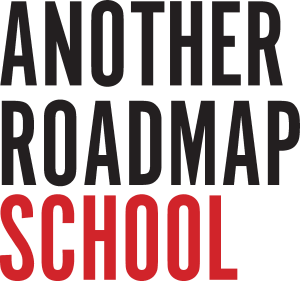At the invitation of Arts Research Africa (a research initiative of the Wits School of the Arts, the Another Roadmap Africa Cluster (ARAC) convened a Symposium on Artistic Research in Africa that took place at
Wits University, Keleketla! Library and other sites of knowledge production and speculation in Johannesburg, 10-18 February 2020.
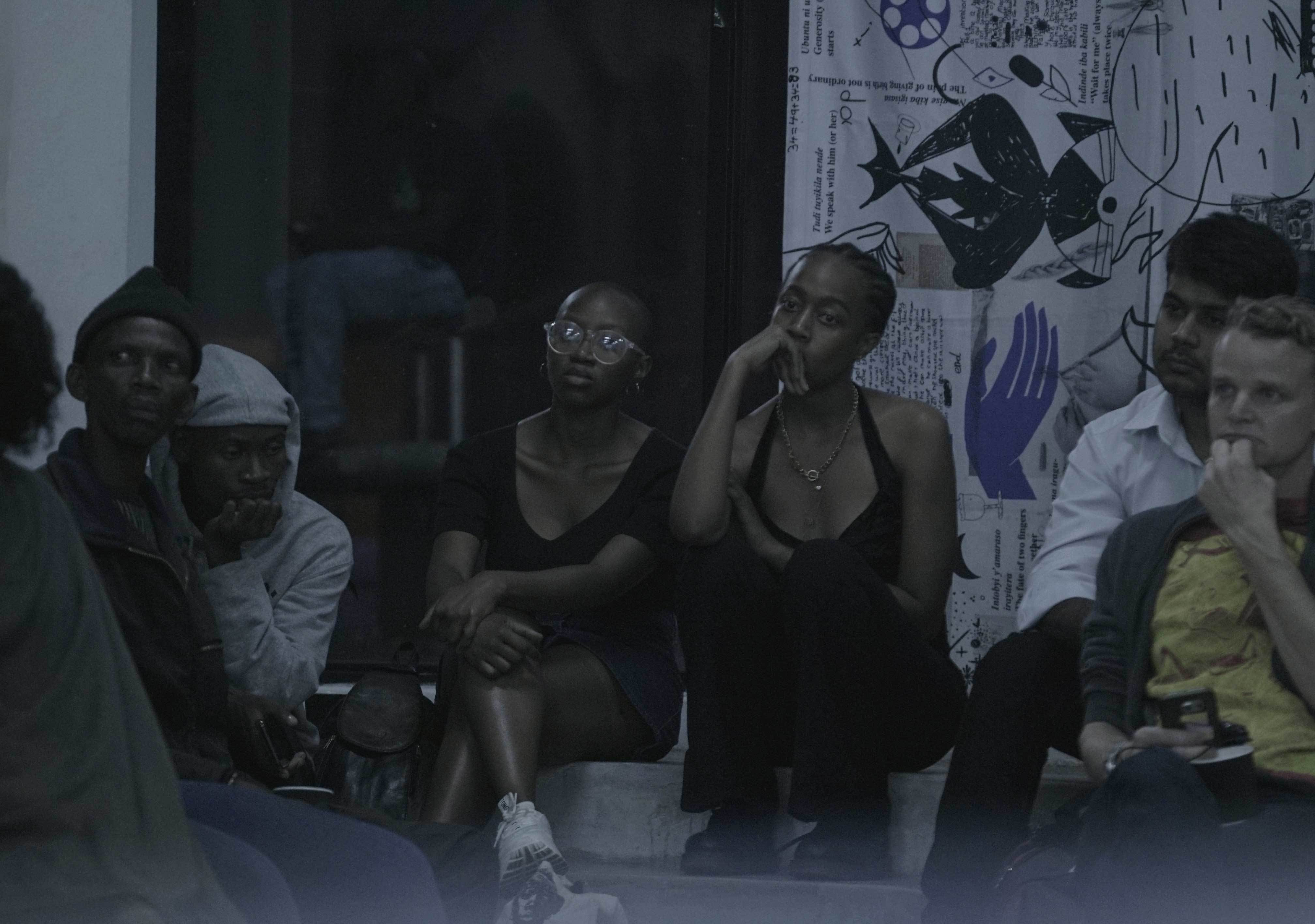
Another Roadmap for Arts Education Africa Cluster (ARAC) convened a symposium in the framework of research on the history of arts education undertaken within a network of educators, artists and researchers working in 23 cities around the world, initiated by the Institute for Art Education at Zurich University of the Arts (ZHdK). The symposium was composed of internal working sessions alongside public workshops, exhibition, evening programmes, live music, performance, site visits, film screenings and coincided with
Lephephe Print Gatherings 4
.
At the level of the African continent, the working groups of Another Roadmap included members of Keleketla! Library, Keep the Dream Arts, Wits School of Arts (University of the Witwatersrand) and independent cultural workers who compose the Johannesburg Working Group; the Kampala Working Group in Uganda, operating at Nagenda International Academy of Art & Design (NIAAD); The Lubumbashi Working Group, operating at Centre d’art Waza; the Nyanza Working Group in Rwanda, working from the former Nile Source Polytechnic of Applied Arts (NSPA); the Maseru Working Group in Lesotho, at Ba re e ne re Literary Arts; and the Cairo Working Group in Egypt, hosted by the Contemporary Image Collective (CIC).
ARAC’s symposium, which took place in conjunction with Arts Research Africa (Wits School of Arts), aimed to reflect on the localised and collective researches since 2015 and the present, shared outcomes, and paved the way forward by hosting internal and public workshops that aimed to transfer, to publish and to expand the histories, conditions, concerns, processes and methods that are particular to each of the working groups that compose the ARAC.
Timelines, learning units, and exhibition kits are some of the interfaces through which these research outcomes have been rendered, and the symposium aimed to make the outcomes available in Johannesburg, through the medium of zines which could be easily reproduced within limited resources.
The symposium hosted a keynote lecture and masterclass on
“why the arts dont do anything”
by Ruben Gaztambide- Fernandez, one of the founding members of Another Roadmap, whose work with indigenous communities in Toronto, Canada, has informed the concerns of Another Roadmap. The symposium also hosted visiting colleagues such Oluwasegun Quadri from Lagos, and Jean Kamba from Kinshasa. The symposium facilitated exchanges between the working groups and community members working in the arts in South Africa at various locations in Johannesburg.
The overall programme of the symposium highlighted the relevance of the historical knowledge of art education, the antecedents of oppositional, anti-imperial and decolonial impulses practiced by art collectives, the spiritual merit and pedagogical value of dance, forms, images, movements and sounds located across the Africas and their diasporas, and the solidarities between alternative pedagogies emerging through South to South alliances among the Africas, Latin Americas and First Nation North Americas. With this approach, the symposium aimed to make relevant the intertwined histories that inform the inhospitable conditions of the present and to intervene by rethinking how to convene, to gather and to assemble beyond the spaces and the times that are officially sanctioned as learning environments.
This project was supported by an ANT Mobility Grant from Pro Helvetia Johannesburg financed by the Swiss Agency for Development and Cooperation (SDC) with additional support from Arts Research Africa at Wits School Arts.
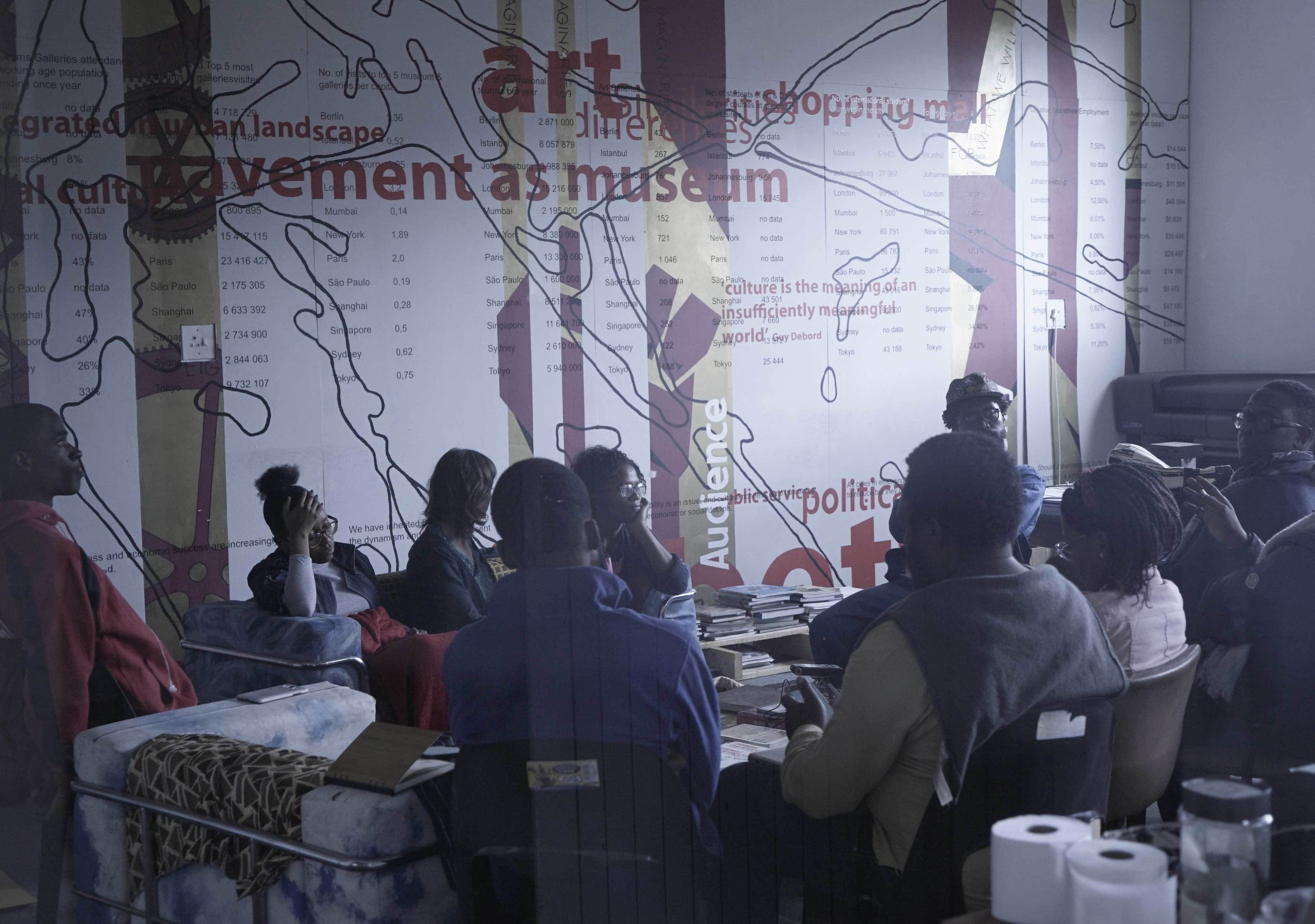
– – –
DETAILED REPORT
In May 2019 Arts Research Africa, a project of the Wits School of the Arts that aims to spark dialogue, stimulate practice, enable research and inspire collective engagement in developing artistic research in the African university, invited ARAC to tender a proposal for a symposium on artistic education in Johannesburg. We decided to use this as an opportunity to arrange a cluster meeting to which we invited as our ‘critical friends’ representatives of the Lagos and Kinshasa working group.
During the closed sessions, we reflected on the work we have done over the past five years, collectively edited our zines, and began to explore new strategies for disseminating what we have learned and what we have been thinking about in the work we have done together. This resulted in the collation of cross-cutting questions and provocations, which we began printing as postcards on the Johannesburg working group’s risograph machine.
Thursday 13 February 2020
Launch Event (The Point of Order, Braamfontein)
During the launch at The Point of Order (the WSOA project space) on Thursday 13 February, we gave an introduction to the work and the goals of ARAC – introducing, in addition to the zines and the postcards, the Johannesburg Working Group’s Un/Chrono/Logical Timeline and the Intertwining Hi/Stories Un/Chrono/Logical Timeline game.
Friday 14 February 2020
Masterclass:
Why The Arts Don’t Do Anything
by Rubén Gaztambide-Fernañdez
(The Point of Order, Braamfontein)
As well as accompanying and contributing to our discussions in the closed sessions as our invited expert, Rubén Gaztambide-Fernañdez (Toronto Working Group) offered a masterclass on his renowned 2013 essay, ‘Why The Arts Don’t Do Anything’ at The Point of Order (the WSOA project space).
Saturday 15 February 2020
ARAC at the 4th Lephephe Print Gathering (King Kong Building, Troyville)
ARAC partnered with the 4th Lephephe Print Gathering on Saturday 15 February. Alongside the book fair and the live zine-making session led by the artistic collective INVADE (who had generously volunteered to help ARAC co-ordinate the public sessions), we organised an iteration of the Johannesburg Working Group’s Un/chronological Timeline, presented the ARAC zines, the Intertwining Hi/Stories Un/Chrono/Logical Timeline game, and we encouraged attendees to engage with our questions and provocations. We provided notebooks in which they could gather copies of materials alongside their own questions and ideas. Rubén Gaztambide-Fernañdez gave a keynote on ‘the orders of cultural production’. The evening culminated in
People Who Think Together Dance Together
– our (by now) traditional dance party.
Sunday 16 February 2020
PERFORMANCE/LECTURE: ‘
Deaesthetic(s)
: A performance of and from a space of dislocation by Tumi Mogorosi (Hillier Street)
The domestic setting of the ‘bring and braai’ served for a formal academic examination of Johannesburg Working Group member Tumi Mogorosi, who gave a performance lecture entitled ‘
Deaesthetic(s)
: A performance of and from a space of dislocation, a critical analysis of the violent aesthetic imprisonment(s) in/of knowledge production’ from a sofa in the garden in the middle of the afternoon.
Mogorosi’s MA work aims to offer a a critique of the classroom – which is to say a critique of the constituting modes of how knowledge is produced, quantified and disseminated. His critique poses a fundamental question to the legitimacy of the obviousness or normativity in western formulations of knowledge making or knowledge production found in the assessment and grading apparatus. Necessitating a search for, and from a space of (dis)location outside of the traditional classroom, Mogorosi seeks to identify and promote practices of knowledge production and knowledge exchange beyond the wall of violent terrains of the institutionally quantifiable/recognisable apparatuses of grading, in the ‘elsewhere’ of knowledge production: the historical spills, the invisible spaces, the spilling out, the excess, and thereby make possible a theory of the non-location/non-locatability (dislocation) which marks an opening for a theory outside of the normative parameters of quantification which can be considered being outside recognition. This is what Mogorosi terms “De
aesthetic
(s)”.
Daily
SCREENING AND DISCUSSIONS:
É
cole du Soir
(Various Locations)
Alongside the closed sessions and the public events, the International Symposium of ARAC in Johannesburg also featured an iteration of
É
cole du Soir
– a multiform hosting structure for collective feeling, thinking, action and reflection convened by artist Christian Nyampeta and the Nyanza Working Group. The iteration of
É
cole du Soir
in Johannesburg was made financially possible with the European Union Prize that Nyampeta received at the Rencontres de Bamako in 2019.
É
cole du Soir
in Johannesburg was inscribed in a long line of activities that consist of a
scriptorium
(a place for writing, and in particular, translating), exhibitions, public programmes and publications, concerned with ‘how to live together’ then, now and tomorrow. The overall programme is resourced around the idea of an ‘evening school,’ following the Senegalese writer and film director Sembène Ousmane, who saw cinema as “cours du soir” or “evening classes.” This concept was informed by the traditions of orality, sensuality, and conviviality within the realm of learning and making in his region. Sembène saw cinema as a popular information system in the service of education, aesthetic experience, and public dissemination. His methodology concerned the use of cinema’s collective production, and investing in its viewing methods that draw from different uses of time, visual and textual histories, social struggles and hopes, in mutuality between his own locality and the world at large.
One of the films presented in this programme
A Walk
(2018), a short film by Nigerian artist Rahima Gambo.
A Walk
is a psycho-geographical survey from Lagos and Abuja, conceived as an interior cartography mapped from the external environment traversed by the artist. Gambo uses
walking
as a narrative, mobile and open-ended mechanism, with no beginning, middle or end, that yields stills, moving images and an assemblage of found objects sculpted together from objects pick up on her ‘path.’ In effect, Rahima Gambo’s walk retraces the rising incident of female suicide bombers in North eastern Nigeria and she describes the experience thus: ‘I saw my body as a porous tool where all sorts of multi-sensory information could be gathered. Entanglements with unfolding landscapes before me and “found things” that could be the sound of birds, video of neatly cut lawn grass, it could be torn photographs, discarded lace material, a stick or a leaf.’
The motive of movement across time and space was at the heart of the programme of
É
cole du Soir
in Johannesburg, and this is a shared strategy among the ARAC Working Groups. Already for some time, the Kampala Working Group has been exploring ‘walking’ as a pedagogical tool, whereby students undertake walks as part of curricular activities that encourage them to pay attention to their environments and surroundings. Through
É
cole du Soir
, these pre-existing movements extended into memories, images, bodily, material, spiritual, formal and conceptual registers. But also, the movements included temporary inter-institutional collaborations (between and across institutions) and intra-institutional (within institutions).
One notable moment took place at the screening held at Trackside Creative – a creative hub space in Orlando West, Soweto, that offers possibilities for design and print, visual arts studio, events space, and is a home for artists to imagine, create and collaborate. Rahima Gambo’s
A Walk
was screened there, alongside
Day in Life
, a new work by Karrabing Film Collective, an indigenous media group based in Australia’s Northern Territories that uses filmmaking and installation as a form of grassroots resistance and self-organization. Both these films were received with enduring resonance: The ensuing discussions and whistling of the soundtracks demonstrated how artists separated by expansive spaces, social injustices and prohibitive bureaucracy may find communion beyond the limits imposed by their respective societal struggles.
Other screenings, reflections, gatherings and discussions were held at the Johannesburg Institute of Advanced Study (JIAS); at Keleketla! Library; at The Point of Order, at Wits School of the Arts; and also at a Bring and Braai hosted by artist and JWG member Rangoato Hlasane’s own home.
